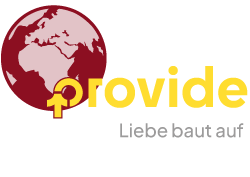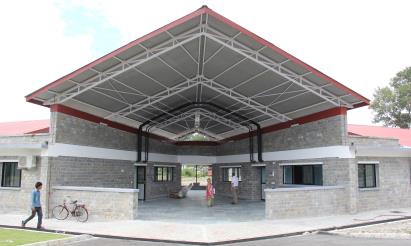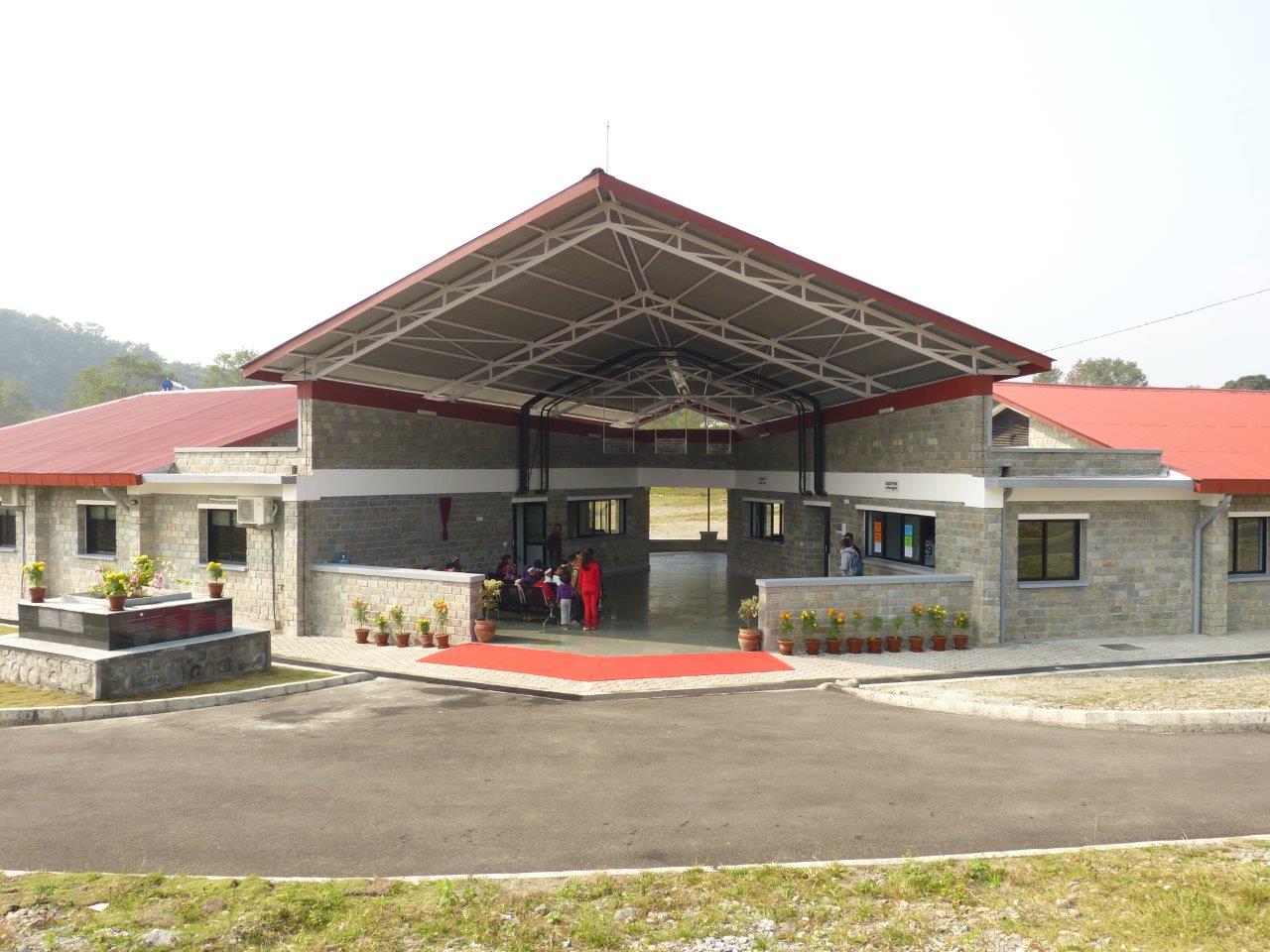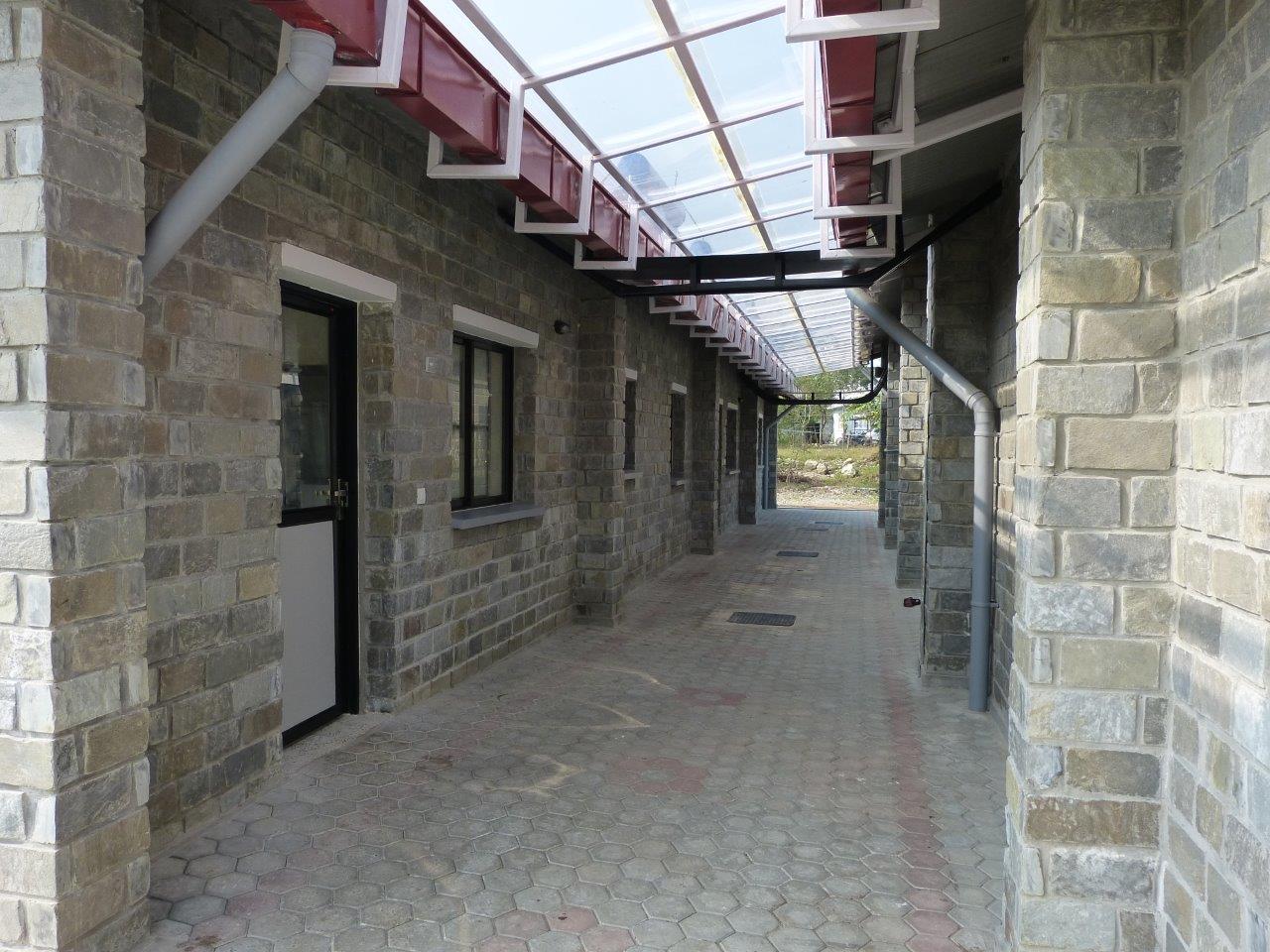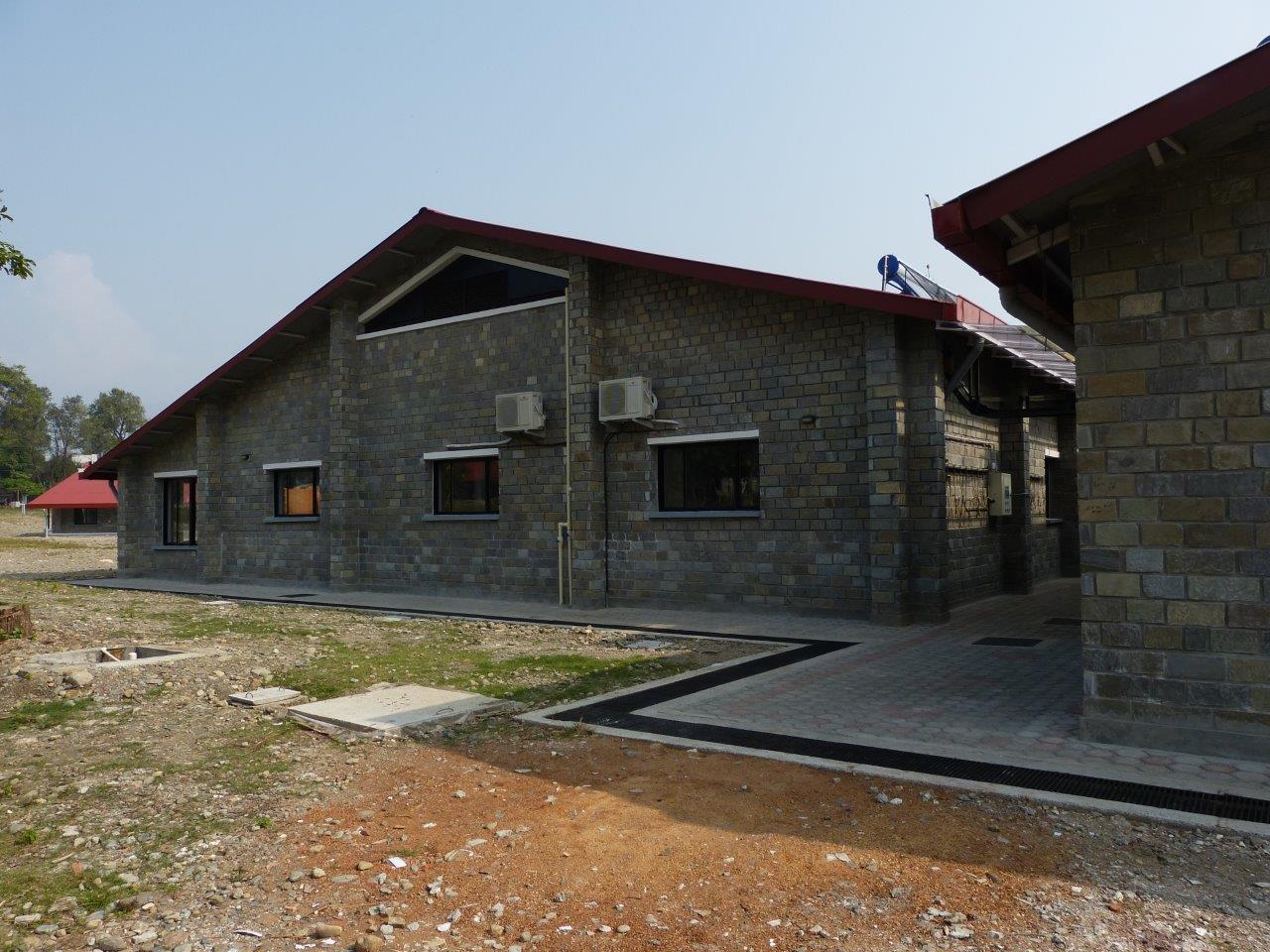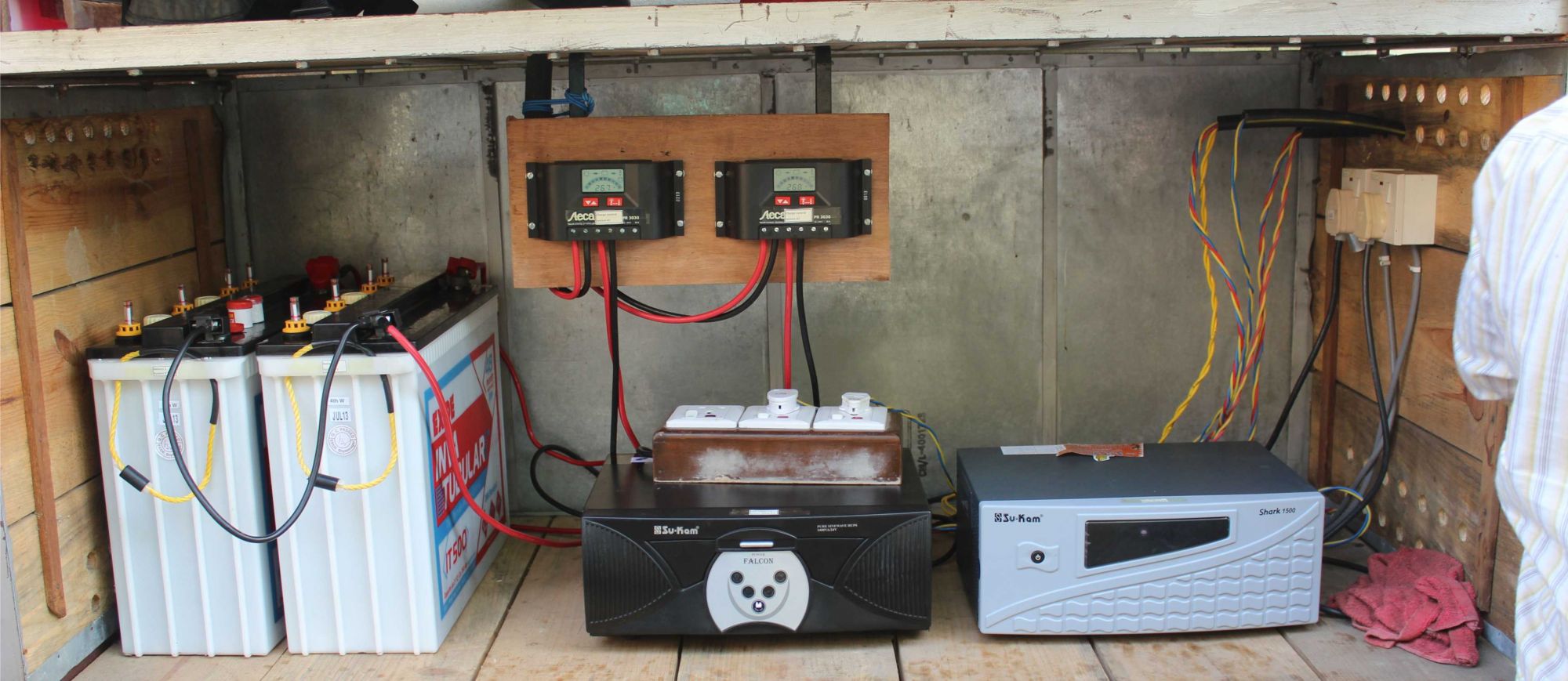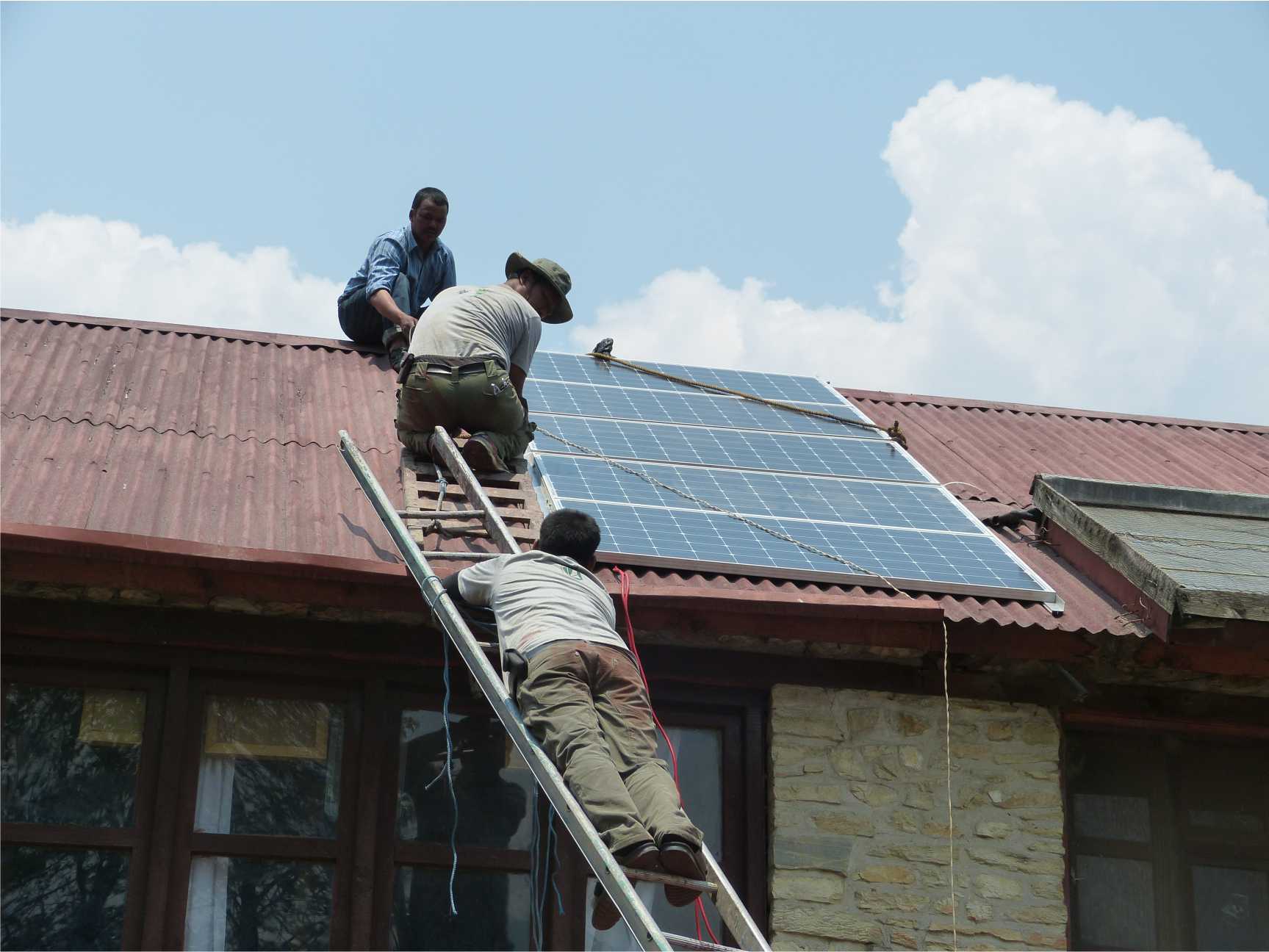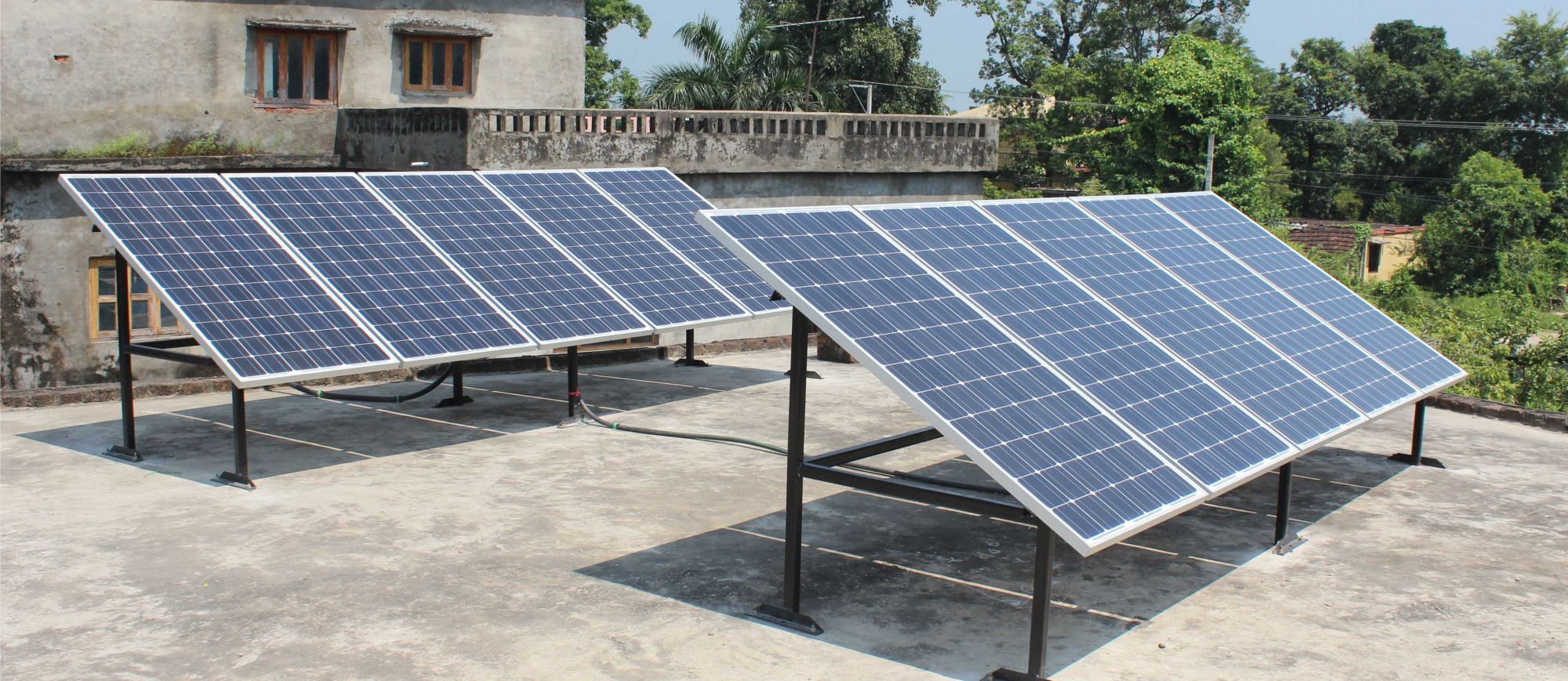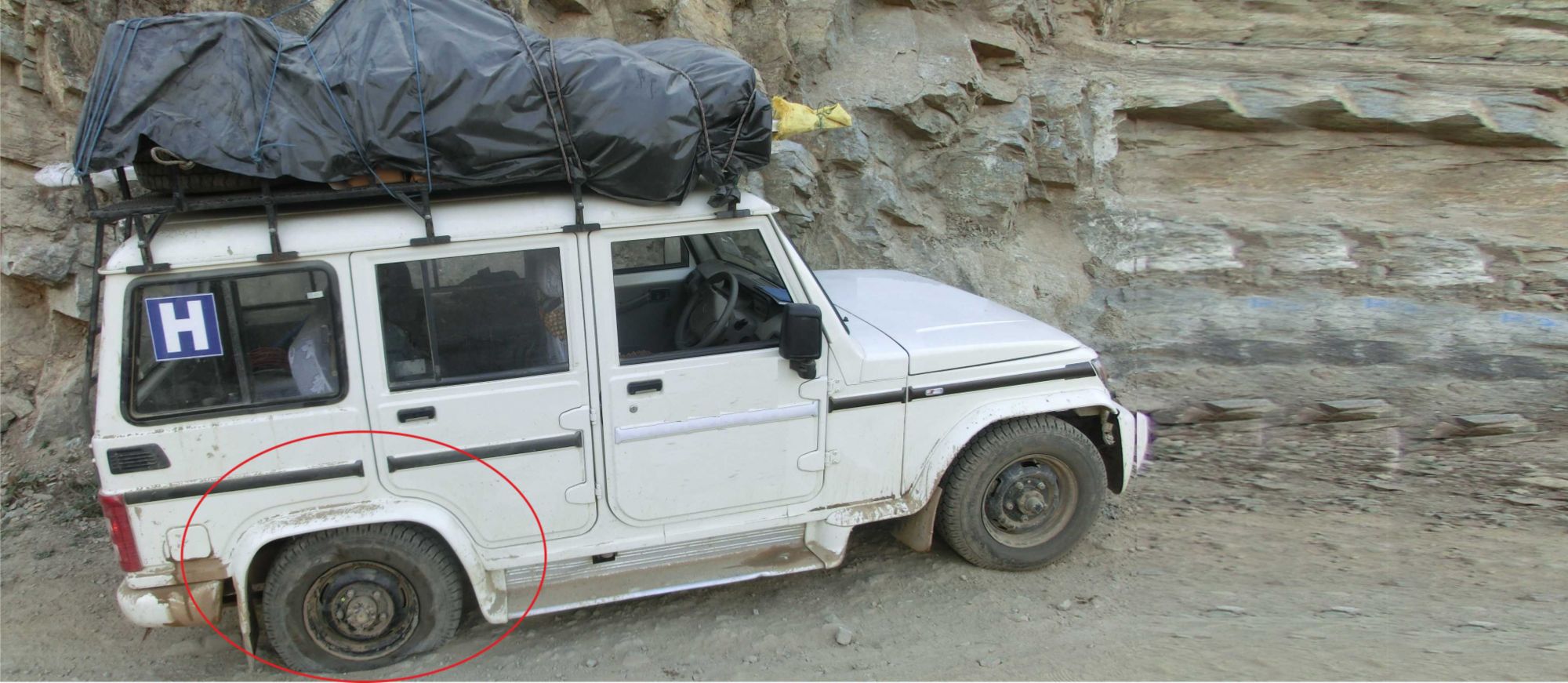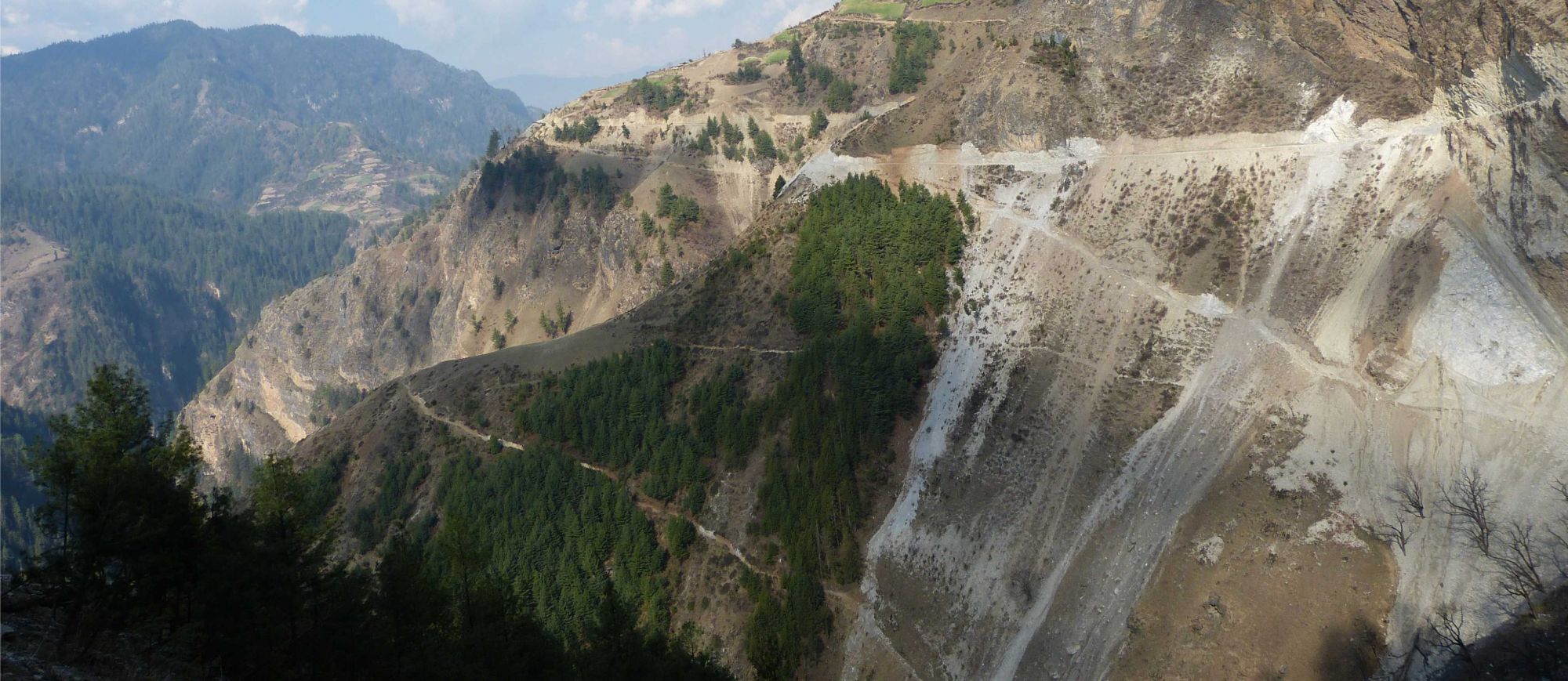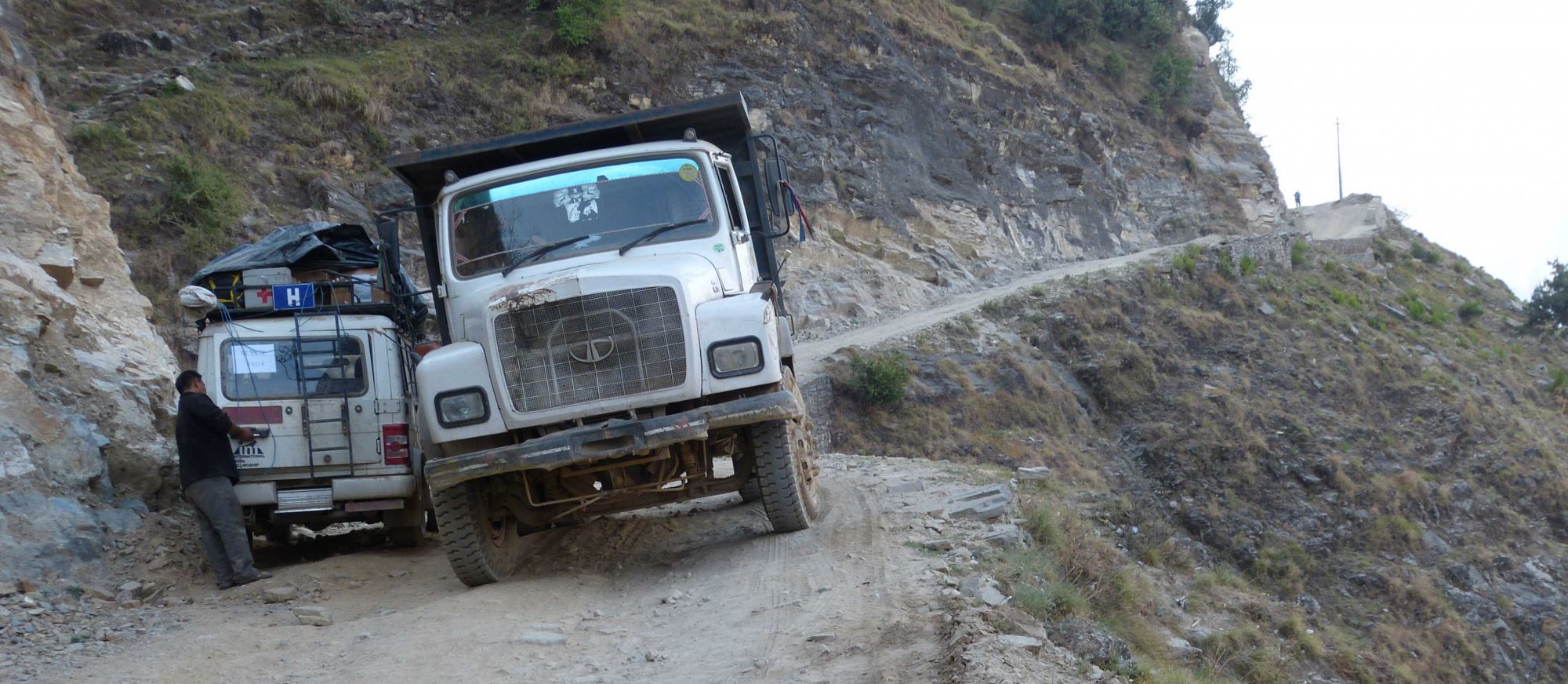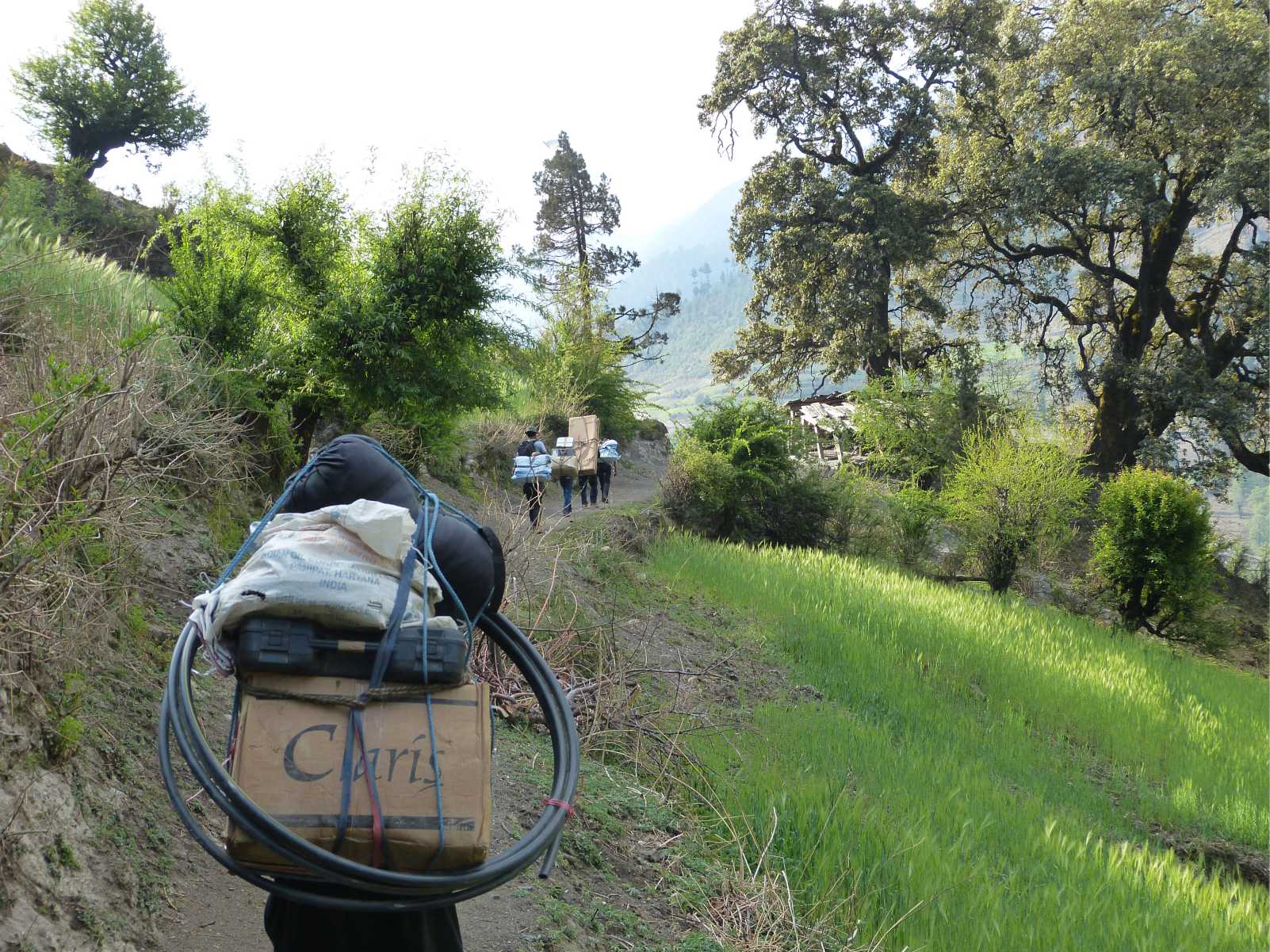They took the leper into their arms
March 2020
We cannot take our eyes off Yahnaa*, a woman in her mid-40th, telling her story. We are celebrating 68 years of our local organization: International Nepal Fellowship (INF). Her slightly bowed fingers, the different discoloring`s and scars on her skin seem to tell us what has shaped her life. Quietly she tells us her story: “We lived with my mother alone in the village. We had no idea, where our father was. I was still young when I started to feel numbness, certain parts of my body I couldn`t feel any longer. My mom took me to our traditional healers, but they could not help me. My health was getting worse. I developed ulcers and got a fever.”
Further on Yahnaa was saying that her mom and the teacher of that village had no idea what to do with her. Desperate they took the sick girl to an INF clinic in Pokahra. The Diagnosis was devastating and the teacher left the disturbed girl and her crying mother in that big, unknown city. Yahnaa was too young to be able to comprehend, what “leprosy” meant, yet the reaction of her mom and teacher were quite shocking for her. The hospital staff treated the ulcers and gave her some medicine. Yet the misery was not over. Back in her home village, she was rejected, threatened and discriminated against, and classmates abused her at school. “My teacher refused to touch my notebooks didn’t want to teach me any longer”, continues Yahnaa. When she turned 11, she could not take it in any longer and fled back to the city Pokhara. She lived on the streets, bagging for food, when INF staff found her and brought her back into the clinic. She got good medical treatment. Yet what struck her most was the love, that she experienced there and it helped her to heel the inner wounds. “The people at the hospital took me into their arms. They weren`t afraid to touch me and were sincerely interested in my wellbeing. I experienced complete healing, in body, soul and spirit.”
Tears run down our cheeks. Today, Yahnaa is married and has three children all are well off. She also works as a volunteer village health officer for vulnerable women and children. In doing so, she wants to be a blessing for others, as she experienced at the time of her need.
Yahnaa is an amazing witness for others and one of many examples of fruit of the over 68 years INF in Nepal.
*name changed
We learned from the past and build up a disaster support management
August 2019
An interview with Krishna Adhikari, the leader of INF-Nepal (partner of Provide)
When did you start your work here at the organization?
About 27 years ago, my brother offered me a job at INF-Nepal. Back than I was 18 years old. At first, I worked as a secretary and taught our national language to foreign experts. Later I was working in different departments, carrying out various responsibilities. The last 12 years I have been the finance director, until the board asked me to take over the leadership of the organization. Never before did I think that I would be leading our organization. 27 years are a long time. As a family we often didn’t know, what will happen next. Yet it is amazing how we always have been well taken care of, felt protected and safe.
How do you feel about working with Provide?
We are very thankful for the support Provide is giving us. They are sending us employees, who are passionate about their job. Provide also supports us financially. We are especially grateful for the enormous help we received after the earthquake in 2015. Together we were able to help over 10.000 people back then.
Have your goals and work changed through the earthquake?
The earthquake was a wakeup call for Nepal and our organization. We stepped in right away and helped out as good as possible, yet there are definitely still things to be improved. Meanwhile we worked out strategies to be well prepared when a crisis hits. We also established a department for civil protection. It is our desire to prepare people in the countryside for heavy storms, earthquakes and other natural phenomena, so they are able to stay safe and survive well on their own, when a crisis hits. Since 2015 INF has helped in 15 smaller catastrophes in the East of Nepal, mainly village fires and flooding’s. We appreciate your support in these areas.
How is the reconstruction after the earthquake progressing?
We are progressively working on reconstruction yet we still see a lot of damage. Right now, we are finishing off two construction projects in Gorkha and Lamjung. Our main focus is the poor population and special needs people. We also concentrate on providing safety for villages.
What are your goals and projects for the future?
The focus of INF always have been people, who nobody else takes interest in at all. This will remain our focus in the future. The vision is “life in abundance for poor and disadvantaged people of Nepal”. We are implementing this through medical sectors in 4 hospitals as well as by 20 different projects in the countryside, at this point.
Please tell us, what friends in Germany can do for Nepal.
Please pray for our projects and the people of Nepal. Please continue to support Provide financially, so we will be able to help people in need. Also, please continue to send us good experts, who are willing to serve in Nepal. Thank you very much for all your help and support over the past 10 years!
Finally yet importantly, please give us some thoughts on our employees in Nepal…
I am very grateful for them. They are doing an excellent job, also promoting the spiritual and professional growth of our local leaders
Hospital for ear-problems in Pokhara
November 2015
After a long period of planning - over 4 years and about 19 months of construction, we are very glad and thankful, that the new INF hospital for ear-problems in Pokhara is ready to take patients in. Our Provide employee was heavily involved in the planning and installing electricity at the facility. On November 3rd the hospital opened its doors, starting up with a 2-week Camp for patients with ear-problems.
Here you have the opportunity to check out the hospital online:
www.ear-for-nepal.org/#!webcam/c1uev
Introducing renewable energy sources
In cooperation with our Nepalese partner, Provide supports the implementation of renewable energy in hospitals and other medical institutions for non-governmental organisations (NGO`s) in Midwest Nepal. During the next 2 years, more than 25 small photovoltaic systems and solar hot water systems for hospitals, day clinics, nutrition centers, rehabilitation centers and other development projects will be designed and, with the help of the local government, will be made available to the Nepalese.
In addition to this, our international Provide employees train and consult local NGO`s in the areas of energy usage, project management, financial management, technology and foreign languages. Local NGO-employees are also trained in the spheres of energy conservation, climate change and environmental protection.
Provide also supports and provides consulting for local NGO`s in areas of needed construction for clinics and hospitals. After successfully finishing the construction of a new day clinic for skin deseases and a training center for disabled people in Pokhara, a new specialized clinic for ENT and the extension of other hospitals are next on the schedule.
Our Provide employees in Nepal also support development projects in other countries of Southeast and Central Asia through training and project analysis.
The projects that Provide is involved in by support and consulting annualy benefit around 50,000 Nepalese and promote healthy relationships and a responsible use of energy and the environment.
If you would like to get in touch with the project leaders, please leave a note here, marked: "Nepal"
On the most dangerous roads of the world
A personal report
We set off with a team of six to install five photovoltaic systems in medical facilities in the mountains of the Himalayas. It was a journey that took us through the most dangerous and highest roads in the world:
First, we drove twelve hours by minibus to Nepalgunj on the Indian border. There we loaded the SUV in the evening, so we would be able to leave for the mountains early the next morning. We wanted to reach the city Manma in Kalikot before 7pm. However, due to the extremely bad roads and our almost 800 kg of cargo, evening came and we were not there yet. We decided to drive on at night, which was pretty risky. The rocky mountain passes, often only gravel and scree slopes, run along deep gorges of about 500 meters, and this without any barriers. You hardly dare to look down. At 9pm a tire burst on a steep passage. At a 20-degree inclination - in the dark - we changed the tire and finally reached Manma at 11pm.
At 6am the next morning, we moved on. But already about 5 minutes later we had to take another break, in the middle of a very narrow road in the mountains - with a rock wall going up on the left and a deep abyss on the right - our last spare tire had burst. We couldn`t move on. The trucks behind us and the oncoming vehicles bunched up, their drivers honked and gestured wildly. We tried to maneuver our car despite the flat tire to a safe place where trucks and cars could pass. At the end of an hour that was filled with honking horns, we finally managed to have the car in a safe spot.
We waited for another hour, until another car with the same size of tires rolled by. It was the leader of a road construction company that was working further up the mountain, building the roads for the government. He was friendly, let us borrow his already repeatedly patched spare tire, and we were able to transfer half of our cargo into his pickup to relieve our SUV. Together we went to the yard of his company, where we were able to mend our broken tire. After some negotiating, the construction company leased us another pickup, so around noon we continued our way to Jumla, this time as a caravan.
The next morning we split up into two teams. One of the teams brought the material, with some help of carriers, by foot to three different remote district offices. The other team prepared the construction of the systems in Jumla and the next morning started the 2 day trip to Gamgadhi. Again, we had to stop over 20 times to clear the road of big rocks or to even out the big potholes in the road with shovels. We were still hours away from our destination when the clutch hose tore apart. We were forced to spend the night on the side of the road. The next morning we organized some carriers for our 250 kg of material and walked the last 4 hours to the office in Gamgadhi.
After two flat tires, a broken clutch cable, a battered driveshaft, 80 hours of driving, six days of walking, diarrhea, five newly built solar plants and lots of new experiences, we returned to Nepalganj. Our help for the Nepalese is only like a little beam of light at night - the solar systems serve to ensure that people receive medical help in remote regions. But that is our mission: to bring "light and hope into the darkness in the west of Nepal .
